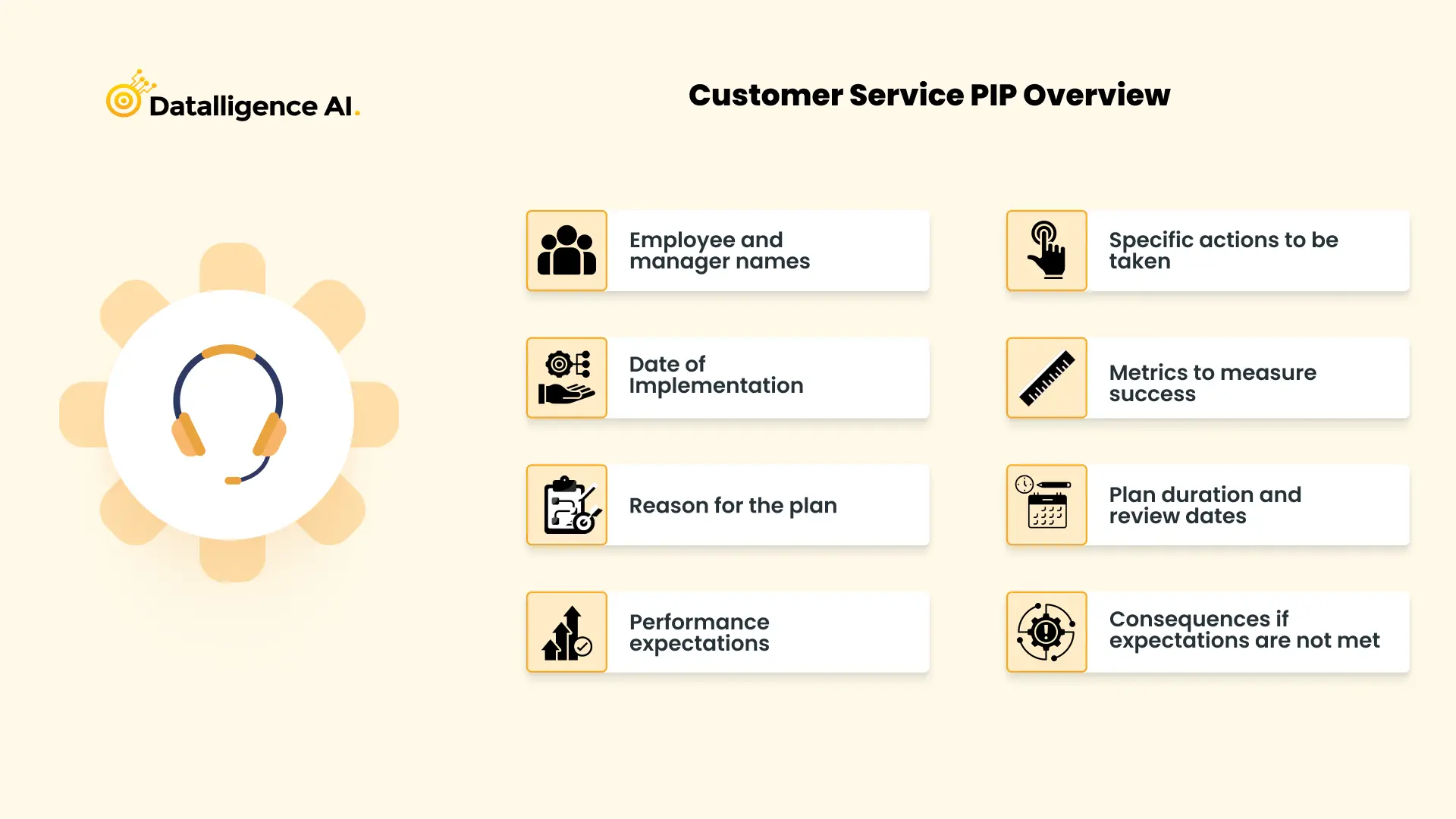20 Benefits of Performance Appraisals in 2025
Performance appraisal has long been a cornerstone of employee management,
Performance appraisal has long been a cornerstone of employee management, shaping career growth, rewards, and workplace efficiency. What started as a structured evaluation tool has transformed into a continuous, feedback-driven process. Traditional methods focused on ranking employees and assessing past performance, but today’s systems emphasize real-time feedback, employee development, and alignment with business goals. As workplaces evolve, performance management software must adapt to foster growth, engagement, and long-term success.
Performance appraisal helps organizations align individual goals with business objectives. It boosts productivity by setting clear expectations and tracking progress. Employees perform better when they understand their roles and responsibilities. A strong system promotes continuous feedback, allowing real-time improvements. Managers can guide employees effectively instead of waiting for annual reviews.
Beyond productivity, performance management Softwares enhances employee engagement. Regular recognition and constructive feedback make employees feel valued. When they see opportunities for growth, they stay motivated and committed. It also identifies skill gaps and provides training, helping employees grow in their careers. Companies that invest in development retain top talent and build a strong workforce.
Data-driven performance management improves decision-making. Organizations use performance metrics to identify top performers and areas needing improvement. Fair and transparent evaluations reduce bias and build trust. A structured system also prepares employees for leadership roles, securing long-term success.
In the end, performance management is not just about measuring results. It creates a culture of accountability, growth, and continuous improvement. When done right, it benefits both employees and the organization, driving overall success.
Performance appraisal has evolved significantly over time, shifting from rigid evaluation methods to more dynamic and employee-centric approaches. Traditionally, organizations used appraisals as a one-way assessment tool, often linked to promotions and salary hikes. Today, the focus has shifted toward continuous feedback, skill development, and aligning individual goals with business objectives.
The concept of evaluating employee performance dates back to the early 20th century. The U.S. military introduced formal appraisals during World War I to assess soldiers’ capabilities. Businesses later adopted these structured evaluations, using ranking and rating methods to judge employee efficiency. In the 1950s and 60s, companies developed management-by-objectives (MBO) models, linking employee performance to organizational goals. However, these methods often relied on annual reviews, which failed to capture real-time performance and improvement opportunities.
In today’s fast-paced work environment, traditional appraisals have proven insufficient. Organizations now emphasize continuous performance management, real-time feedback, and employee engagement. Technology plays a crucial role, enabling companies to track performance through software solutions that integrate goal-setting, progress tracking, and peer feedback. Instead of annual reviews, many businesses adopt OKRs (Objectives and Key Results) and 360-degree feedback systems to create a holistic evaluation process.
Employees now expect appraisals to be more than just a performance score. They seek career growth, mentorship, and development opportunities. Organizations have responded by making performance reviews a two-way conversation, fostering a culture of learning and improvement. Data analytics further enhances appraisal accuracy, reducing bias and ensuring fair assessments.
As workplaces become more agile, performance management software will continue evolving. AI-driven analytics, continuous feedback loops, and personalized growth plans will shape the future. The emphasis will be on adaptability, employee well-being, and aligning personal aspirations with business success. The goal is no longer just to evaluate performance but to enable employees to thrive.
Performance appraisals are a critical component of effective organizational management. They not only evaluate employee performance but also serve as a tool to enhance morale, communication, and alignment with organizational goals. A well-structured performance appraisal system contributes significantly to employee engagement, productivity, and professional growth. Below is a comprehensive exploration of the key benefits of performance appraisals.
One of the most immediate and impactful benefits of performance appraisals is the positive effect they have on employee morale. When employees receive recognition for their hard work, it instills a sense of value and motivation.
Formal recognition through appraisals meets higher-level psychological needs, such as feeling valued and respected. Employees who perceive their contributions as meaningful are more likely to remain engaged and committed to their work. A structured appraisal system ensures that achievements, both big and small, are acknowledged, fostering motivation and enthusiasm.
High morale creates a sense of belonging within the team, encouraging collaboration and teamwork. Employees who feel secure in their roles are more inclined to contribute actively, share ideas, and participate in organizational initiatives. This sense of unity strengthens workplace culture and enhances overall productivity.
Regular feedback reinforces the notion that employees’ efforts contribute meaningfully to the organization’s success. Knowing that their work is valued and that they are on the right track enhances job satisfaction, reducing turnover rates and increasing long-term employee retention.
Performance appraisals play a crucial role in aligning individual roles with organizational objectives by clearly defining expectations. Employees who understand their responsibilities and how their work contributes to broader goals are more likely to perform efficiently and effectively.
Performance appraisals often involve setting Specific, Measurable, Achievable, Relevant, and Time-bound (SMART) goals. These provide employees with clear benchmarks for success, ensuring that they have a structured roadmap to follow in their professional journey.
Managers use appraisals to reiterate daily tasks and long-term objectives, ensuring employees are well aware of what is expected of them. This helps eliminate ambiguity and enables employees to focus on key performance areas that contribute to organizational success.
By tracking progress against predefined metrics, appraisals foster accountability. Employees are encouraged to take ownership of their responsibilities, leading to improved efficiency and effectiveness in their work.
One of the most significant benefits of performance appraisals is their role in identifying skill gaps and opportunities for professional development. This process enables organizations to invest in targeted training programs that enhance employee capabilities.
Performance appraisals highlight areas where employees require additional training or support, enabling organizations to design effective development programs. By identifying these needs, businesses can implement workshops, mentorship programs, or e-learning solutions that improve employee competencies.
Constructive feedback provides employees with actionable insights into how they can improve and advance in their careers. By setting clear career progression paths, organizations empower employees to take proactive steps toward professional growth and development.
Tailored feedback ensures that employees receive specific recommendations for improvement, fostering continuous learning. Personalized development plans help employees focus on their strengths while addressing areas that require enhancement, ultimately contributing to their career success.
Performance appraisals facilitate meaningful dialogue between managers and employees, promoting transparency and mutual understanding. Open communication channels contribute to a healthier workplace environment.
Appraisal discussions provide opportunities for employees to share concerns, challenges, and aspirations while receiving guidance from managers. This two-way feedback mechanism ensures that both parties are aligned in their expectations and objectives.
Open communication during appraisals builds trust and strengthens workplace relationships. Employees feel more comfortable discussing work-related concerns, leading to a more collaborative and supportive work environment.
Managers use appraisal meetings to actively listen to employee feedback, ensuring that workers feel heard and valued. Active listening demonstrates empathy and consideration, reinforcing employee engagement and job satisfaction.
Performance appraisals provide valuable data that inform strategic decisions regarding promotions, salary adjustments, training needs, or succession planning. Organizations that leverage performance appraisal data can make more informed and objective workforce decisions.
Appraisal results help identify top performers who deserve rewards such as raises or promotions. Recognizing and rewarding high-performing employees fosters a culture of excellence and motivation.
Reviews highlight areas where employees struggle, enabling organizations to implement targeted training initiatives. By addressing skill gaps proactively, companies can enhance workforce capabilities and drive operational efficiency.
Appraisal data assists in identifying candidates for leadership roles or other critical positions within the organization. Understanding employee strengths and potential enables organizations to develop future leaders and ensure business continuity.
The evolution of performance appraisal reflects the changing needs of businesses and employees. The rigid, once-a-year evaluations of the past have given way to agile, data-driven systems that prioritize continuous learning and engagement. As organizations embrace AI, real-time feedback, and personalized development plans, the future of performance management will focus on empowering employees rather than merely assessing them. Businesses that invest in modern appraisal systems will not only enhance productivity but also build a motivated and future-ready workforce.
Ramya P C2025-06-02T05:04:25+00:00June 1, 2025|Performance Management|
Performance appraisal has long been a cornerstone of employee management,
Ramya P C2025-05-28T12:47:07+00:00May 28, 2025|Performance Management|
In today’s dynamic workplace, employee development and engagement are more
Ramya P C2025-05-25T07:39:13+00:00May 23, 2025|General|
Performance management platforms have become strategic essentials in today's ever-changing
Ramya P C2025-05-20T09:31:46+00:00May 20, 2025|Performance Management|
To determine an employee's actual contribution and development, traditional
Ramya P C2025-04-09T06:07:12+00:00April 9, 2025|Performance Management|
In today’s dynamic and hybrid work environments, traditional performance appraisal
Ramya P C2025-04-01T05:22:37+00:00April 1, 2025|Performance Management|
According to a study by Gallup, only 14% of employees
Ramya P C2025-03-27T05:16:16+00:00March 27, 2025|General|
In today's rapidly evolving workplace, traditional performance management approaches
Ramya P C2025-03-27T03:56:31+00:00March 26, 2025|General|
Many organizations treat performance management as a yearly formality—an exercise
Ramya P C2025-03-13T13:03:42+00:00March 13, 2025|General|
Understanding the Halo and Horn Effect in Performance AppraisalImagine a
Ramya P C2025-03-18T07:16:35+00:00March 9, 2025|Performance Management|
In today's competitive business landscape, organizations are constantly seeking ways
In today’s competitive business landscape, organizations are constantly seeking ways to enhance employee performance and drive success. A performance improvement plan (PIP) is a powerful tool that managers can use to help struggling employees get back on track. By providing clear expectations, specific goals, and targeted support, a well-crafted PIP can transform underperforming staff into valuable assets for the company.
This article explores six effective performance improvement plan examples across different areas of business. From boosting sales figures to enhancing customer service, improving project management skills, developing leadership abilities, and optimizing human resources practices, these PIPs offer practical strategies to address common workplace challenges. By examining these examples, managers and HR professionals can gain insights to create tailored plans that drive employee growth and contribute to overall organizational success.
A Sales Performance Improvement Plan (PIP) is a structured approach to enhance the skills, behaviors, and results of underperforming sales representatives. It serves as a wake-up call for those who are seriously struggling to meet expectations. The purpose of a PIP is to define critical areas of concern, reiterate team expectations, and demonstrate a commitment to improving sales performance.
PIPs are not meant to address one-time issues or behavioral problems. Instead, they focus on persistent performance issues that have been repeatedly addressed without corresponding improvement. The duration of a PIP typically ranges from 30 to 90 days, depending on the severity of the situation.
To create an effective Sales PIP, managers should include the following key elements:
When developing action items, it’s crucial to set SMART goals:
Sales PIP Timeline
A well-structured Sales PIP should include a clear timeline for improvement and review. Here’s a suggested approach:
Throughout the PIP process, managers should provide ongoing guidance, support, and necessary resources to help the sales representative succeed. This may include additional training, coaching, or tools to address identified skill gaps.
It’s essential to remember that a PIP is not meant to be a passive exercise. Managers must actively monitor progress, provide feedback, and adjust the plan as needed. By maintaining open communication and offering support, organizations can increase the chances of turning around and contributing to overall team success.
Performance Improvement Plan (PIP) Example: Sales Manager
Areas for Improvement:
Improvement Goals:
Action Steps:
Expected Outcome:
By the end of the quarter, John is expected to achieve his sales targets, improve team morale, and restore positive client relationships, leading to a more cohesive and successful sales operation.

Customer service has a significant impact on a company’s profitability and reputation. A well-designed Performance Improvement Plan (PIP) for customer service can lead to sales increases of 20% or more of total company revenue. To create an effective PIP, organizations need to focus on specific areas and implement strategic steps to achieve measurable goals.
A Customer Service PIP is a tool designed to help underperforming employees improve their skills and meet expectations. It addresses specific performance deficiencies, identifies training gaps, and sets clear goals for development. The plan typically spans 30, 60, or 90 days and includes the following key elements:

To create an effective Customer Service PIP, managers should include the following action items:
A well-structured Customer Service PIP should follow a clear timeline:
Throughout the PIP process, managers should maintain open communication, offer support, and adjust the plan as needed. By implementing these strategies, organizations can improve customer service performance, increase customer satisfaction, and ultimately drive business success.
PIP Example: Customer Service Representative
Areas for Improvement:
Improvement Goals:
Action Steps:
Expected Outcome:
Sarah is expected to meet the response time standards, ensure accuracy in her communications, and significantly improve customer satisfaction ratings, leading to a better overall customer experience.

Performance improvement is crucial for project managers to ensure their projects deliver value, meet objectives, and align with strategic goals. A well-structured Performance Improvement Plan (PIP) can help address gaps in quality, efficiency, and effectiveness of project management processes.
A Project Management PIP is a tool designed to help underperforming project managers improve their skills and meet expectations. It addresses specific performance deficiencies, identifies training gaps, and sets clear goals for development. The plan typically spans 30, 60, or 90 days and includes the following key elements:
To create an effective Project Management PIP, managers should include the following action items:
A well-structured Project Management PIP should follow a clear timeline:
Throughout the PIP process, managers should maintain open communication, offer support, and adjust the plan as needed. By implementing these strategies, organizations can improve project management performance, increase stakeholder satisfaction, and ultimately drive business success.
PIP Example: Project Manager
Areas for Improvement:
Improvement Goals:
Action Steps:
Expected Outcome:
John is expected to improve his ability to manage project timelines, optimize resource allocation, and communicate effectively with stakeholders, resulting in timely project deliveries, reduced costs, and increased stakeholder satisfaction.

Leadership plays a crucial role in shaping company culture and team dynamics. When a leader exhibits poor performance, it can have far-reaching consequences, affecting team morale, productivity, and overall work performance. A well-designed Performance Improvement Plan (PIP) for leadership focuses on addressing specific deficiencies and setting measurable objectives to enhance leadership skills.
A Leadership PIP is a structured approach to help underperforming leaders improve their skills and meet expectations. It typically includes the following elements:
To create an effective Leadership PIP, managers should include the following action items:
A well-structured Leadership PIP should follow a clear timeline:
By implementing these strategies, organizations can improve leadership performance, increase team satisfaction, and ultimately drive business success. A well-executed Leadership PIP not only benefits the individual leader but also promotes better company cohesion and improves communication across teams.
PIP Example: Team Leader
Areas for Improvement:
Improvement Goals:
Action Steps:
Expected Outcome:
Emily is expected to improve team morale through enhanced communication and recognition practices, make quicker and more effective decisions, and resolve conflicts within the team, leading to a more productive and positive work environment.

A Performance Improvement Plan (PIP) in Human Resources is a structured approach to address employee performance deficiencies and foster professional growth. It serves as a formal tool that outlines areas for enhancement, sets clear targets, and offers guidance to employees who are struggling to meet expectations.
An HR PIP is designed to:
The plan typically spans 30, 60, or 90 days, depending on the nature and severity of the performance issues. It’s crucial to note that a PIP should be implemented when there’s a genuine commitment to help the employee improve, not as a precursor to termination.
To create an effective HR PIP, managers should include the following elements:
HR professionals should review the plan to ensure fairness and remove any potential bias. They should also guide managers in administering the PIP and provide ongoing support to managers and employees throughout the process.
A well-structured HR PIP timeline typically includes:
Throughout the process, it’s essential to document all meetings, progress, and any additional support provided. If the employee successfully meets the objectives before the PIP’s expiration date, the plan can be formally closed, and the employee’s success should be recognized.
By implementing a well-designed HR Performance Improvement Plan, organizations can address performance issues effectively, foster employee growth, and align individual performance with company goals and values. This proactive approach not only helps struggling employees but also contributes to a more productive and engaged workforce.
PIP Example: HR Specialist
Areas for Improvement:
Goals:
Actions:
Timeline:
Expected Outcome:
Jason is expected to improve his recruitment efficiency, handle grievances more effectively, and ensure full compliance with HR policies. Successful implementation of the PIP should result in a more streamlined hiring process, better employee relations, and adherence to HR regulations.
Performance Improvement Plans are powerful tools to boost employee success and organizational growth. By examining these six examples across different business areas, managers and HR professionals gain valuable insights to create tailored plans that address specific challenges. These PIPs offer practical strategies to enhance sales performance, improve customer service, optimize project management, develop leadership skills, and refine HR practices.
To wrap up, implementing well-structured PIPs can lead to significant improvements in employee performance and overall business success. Datalligence offers solution-based content and tools to help organizations create effective Performance Improvement Plans tailored to their unique needs. To learn more about how Datalligence can support your performance management efforts, schedule a demo today.